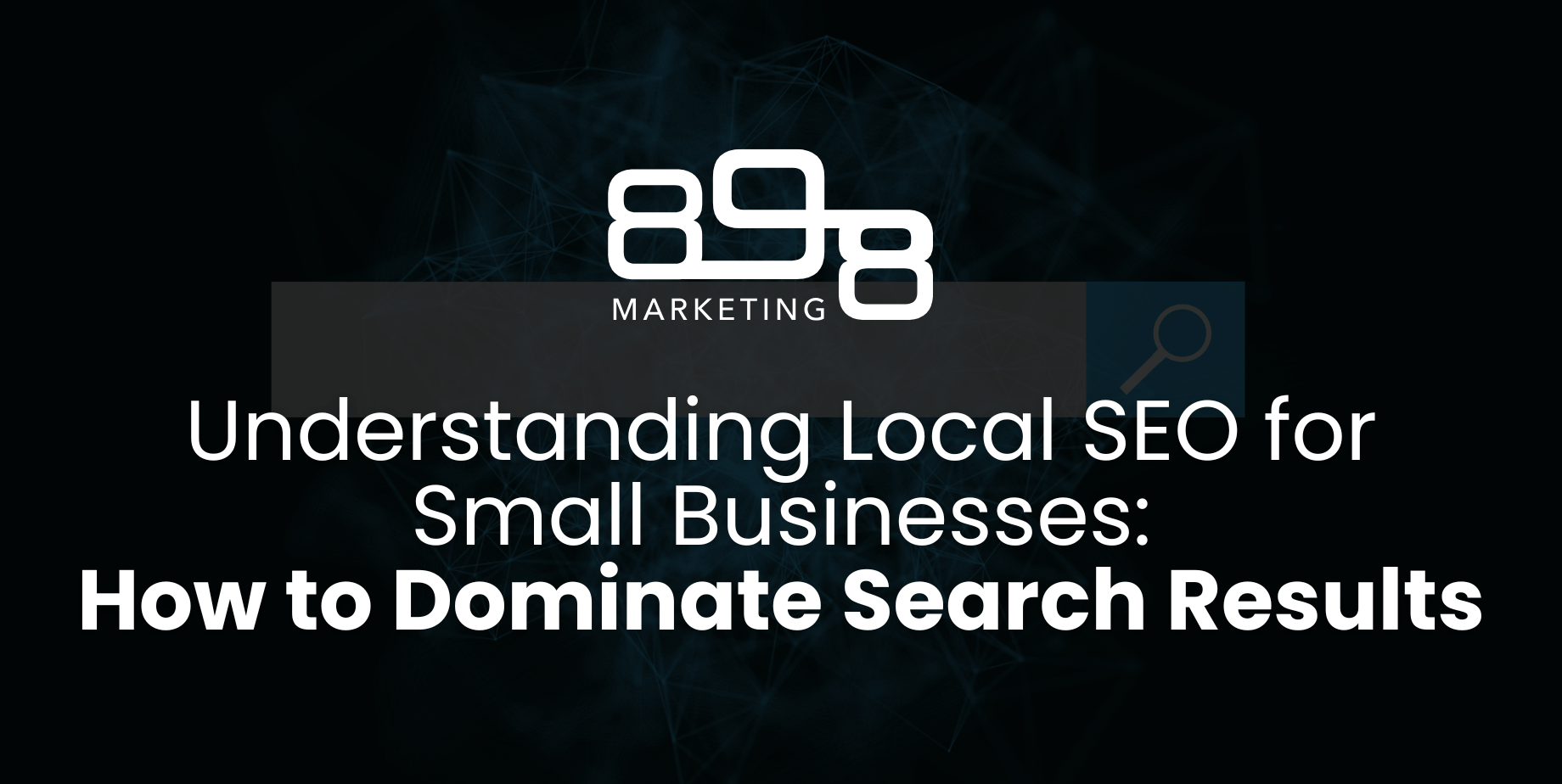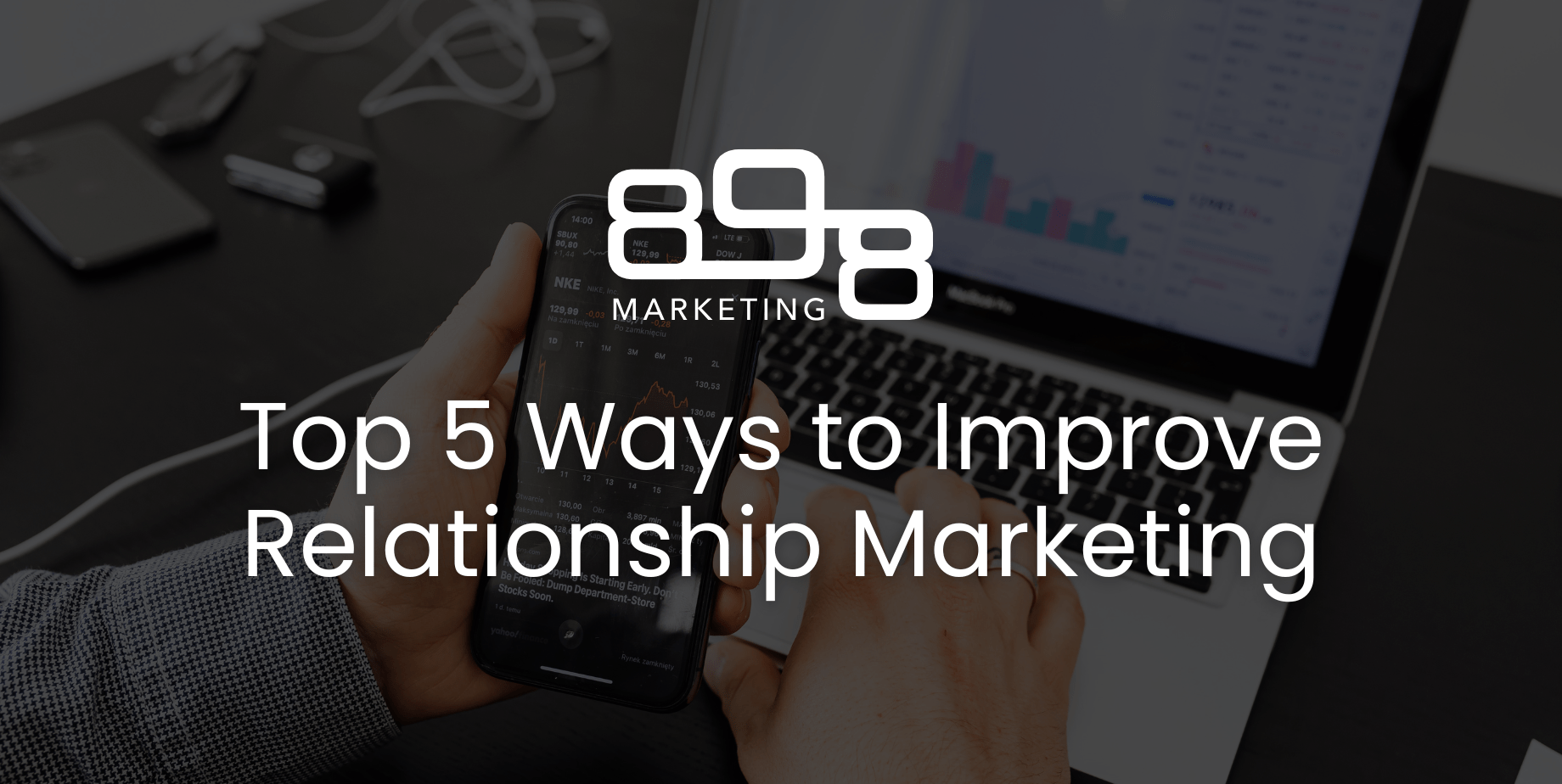
Understanding Local SEO for Small Businesses: How to Dominate Search Results
- Lexi Marco
- April 22, 2025
- Uncategorized
- 0 Comments
Your Small Business Can Make a Huge Impact
In an evolving digital world, visibility that builds brand awareness is crucial for local businesses. Search engine optimization (SEO) efforts—like improving your website’s ranking on Google, updating your Google Business Profile and appearing on the Local Map Pack—are key to getting in front of target consumers.
However, it may be hard to understand the best practices and ways to implement local SEO as a small business. Let’s take a deep dive into everything you need to know about dominating local search results and understanding local SEO.
What is SEO?
SEO stands for Search Engine Optimization, and there are two divisions of SEO: national SEO and local SEO.
National SEO is the process of improving the visibility of your website on a national or international scale.
Local SEO is the process of optimizing pages on your website that improve the search results for your business on a local scale. Overall, both levels of SEO aim to boost visibility in search results. SEO does not include the top search results that are labeled as “sponsored,” these are known as PPC ads.

Why is local SEO especially important for small business owners?
There are many reasons why SEO optimization is important for the growth and sustainment of your small business. SEO leads to increased visibility, which translates to more brand awareness. Increased visibility is when your business ranks higher on relevant searches compared to other businesses.
When your business appears on the first page of search engine results—like on Google or Bing—searchers understand that your site is credible, reliable and well-known. Credibility is essential for your local business because it shows that your customers trust you and your brand/business. This also allows for positive growth within brand visibility and brand reputation.
Proper and consistent SEO efforts can lead to an increase in sales. Typically, people who find your business on search engines are high-intent customers. These customers are actively searching for keywords related to your brand and most likely ready to buy a related product or service. A goal of local SEO is to help your business show up under the “Near Me” section of search engines (ex. “Barbers near me”) thus leading to calls and clicks directly to your business.
How does local SEO work?
SEO can be summed up by a three-step process: crawling, indexing and ranking. Search engines will crawl a page on a website to get an understanding of the purpose (indexing) and then rank your webpage for keywords the search engine determines relevant during indexing. In reference to local SEO, your “web page” would be your Google Business Profile.
So, where does the Local Map Pack come into play? Three factors directly impact Local Map Pack: relevance, prominence, and distance.
- The relevance of your search to businesses in the area
- The distance of how close you are to the relevant businesses in the area
- The prominence of the businesses
Google will then separate the top search results from the traditional search results. The top search results are known as the Local Map Pack, and all results are shown in the organic web results.

How can my business dominate local search results?
Improving or starting local SEO can be done in a multitude of ways. Let’s explore them together.
- Local keyword research– Keywords are the most basic form of SEO. This is the process of finding key words that are used in or related to your products or services. Using very broad terms to describe your solution is a great place to start. Then, narrow down your keywords by using long-tail variations. For example: Your business sells vintage, one-of-a-kind furniture. A broader keyword would be “vintage furniture” while a narrowed down keyword would be “1920s style arm chair.” This can help you appeal to customers with a very specific need.
- Optimize and utilize your Google Business profile– This includes providing details about your business that can help increase your ranking when customers search for relevant terms. Some crucial information to include on your Google Business profile are contact information, operating hours, updated photos and videos and business characteristics.
Tip: It is also important to keep an active profile by updating holiday hours and having customers leave reviews (and responding to them). Using your Google Business profile as a way to post updates about your business is a best practice. Depending on your primary category, you may also be able to add event info, links to tickets, set up booking and more.
- Citations and Backlinks– Citations are information regarding your business on other websites, like Yelp. Backlinks can be thought of as your “business friends.” Utilizing backlinks is a way to present your company as informational, credible and valuable. Some examples include non-competitor businesses, local websites and newspapers and sponsoring local events.
Local SEO Benefits for Small Businesses
Do you feel ready to take on the local SEO world? Whether your goal is to build company awareness, increase sales or generate more organic website traffic, your small business can increase its likelihood to rank more easily and express your brand’s full potential to customers by using all of the above information.
Be sure to reach out to the local SEO professionals at 898 Marketing to help your small business make a huge impact.






Recent Comments